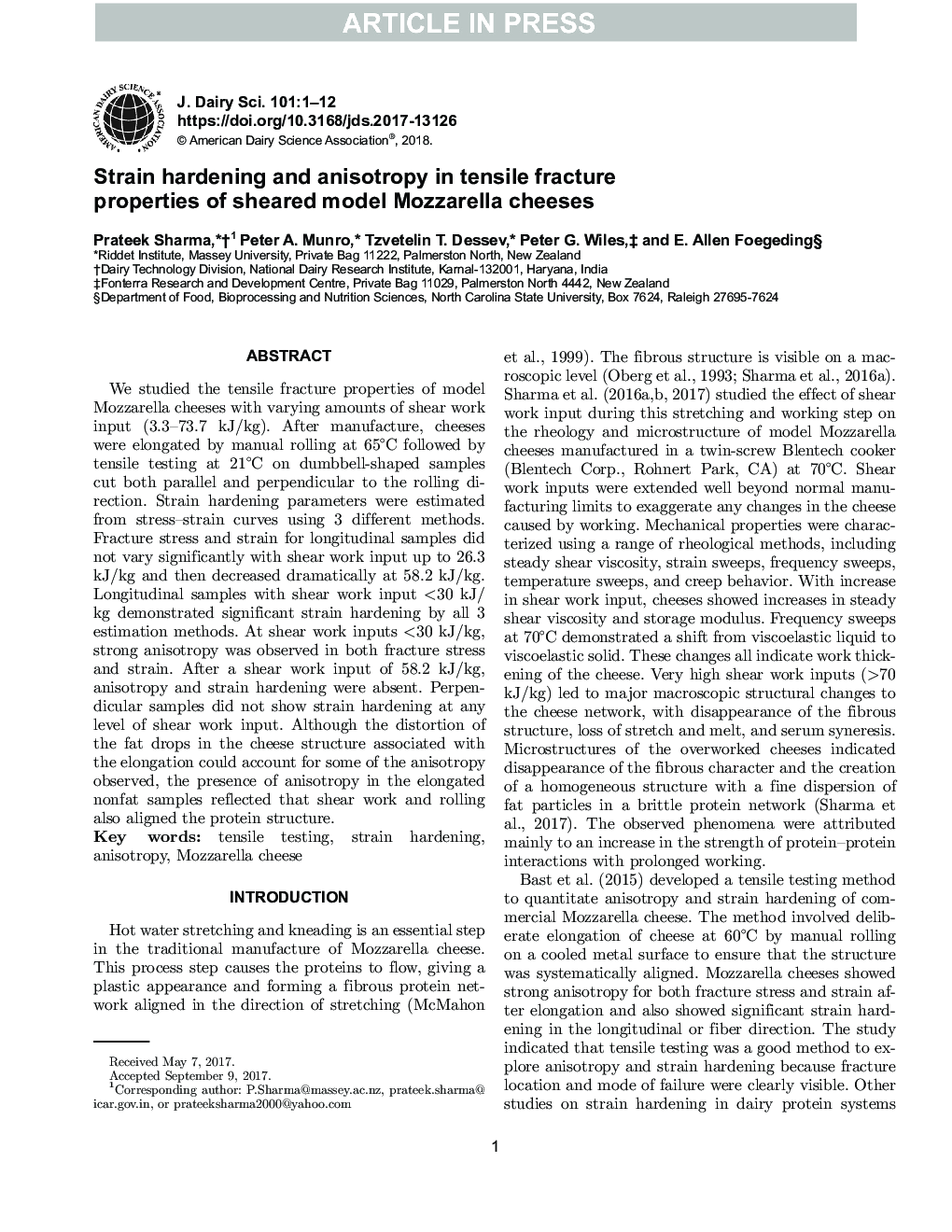| Article ID | Journal | Published Year | Pages | File Type |
|---|---|---|---|---|
| 8501592 | Journal of Dairy Science | 2018 | 12 Pages |
Abstract
We studied the tensile fracture properties of model Mozzarella cheeses with varying amounts of shear work input (3.3-73.7 kJ/kg). After manufacture, cheeses were elongated by manual rolling at 65°C followed by tensile testing at 21°C on dumbbell-shaped samples cut both parallel and perpendicular to the rolling direction. Strain hardening parameters were estimated from stress-strain curves using 3 different methods. Fracture stress and strain for longitudinal samples did not vary significantly with shear work input up to 26.3 kJ/kg and then decreased dramatically at 58.2 kJ/kg. Longitudinal samples with shear work input <30 kJ/kg demonstrated significant strain hardening by all 3 estimation methods. At shear work inputs <30 kJ/kg, strong anisotropy was observed in both fracture stress and strain. After a shear work input of 58.2 kJ/kg, anisotropy and strain hardening were absent. Perpendicular samples did not show strain hardening at any level of shear work input. Although the distortion of the fat drops in the cheese structure associated with the elongation could account for some of the anisotropy observed, the presence of anisotropy in the elongated nonfat samples reflected that shear work and rolling also aligned the protein structure.
Related Topics
Life Sciences
Agricultural and Biological Sciences
Animal Science and Zoology
Authors
Prateek Sharma, Peter A. Munro, Tzvetelin T. Dessev, Peter G. Wiles, E. Allen Foegeding,
